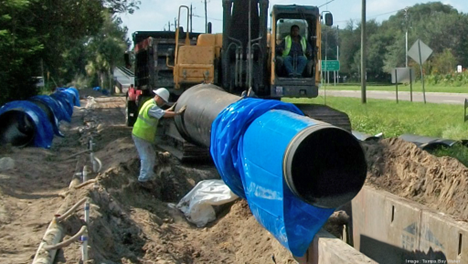Across Florida, many property owners are being approached by utility companies seeking access to their land. Whether it’s for underground power lines, water mains, gas pipelines, or fiber optic cables, these companies may claim the right to acquire a portion of your property—even if you don’t want to sell.
This process, known as utility eminent domain, is legal in Florida under certain conditions. But many property owners are unaware of what rights they still have—and how to ensure they receive fair treatment and compensation.
What Is Utility Eminent Domain?
In Florida, both government agencies and private utility companies can be granted the power of eminent domain. This means they can legally acquire private property for projects that serve a public use, as long as they provide just compensation to the property owner.
Under Florida Statutes Chapter 73 and 74, utility companies—such as Florida Power & Light (FPL), Duke Energy, TECO, Florida Gas Transmission, or municipal water authorities—can initiate eminent domain proceedings if they can demonstrate that:
- The project is necessary for the public, and
- The taking is reasonably necessary to accomplish that purpose.
Examples of qualifying utility projects in Florida include:
- Expanding electric transmission corridors (e.g., FPL’s power grid upgrades)
- Installing or upgrading underground water or sewer systems
- Constructing natural gas pipelines through rural or residential property
- Laying high-speed fiber optic lines for broadband internet expansion
What Property Interests Can Be Taken?
In Florida, utility takings most commonly involve easements, but can also include full or partial acquisition of land:
1. Permanent Utility Easements
These grant the utility the right to access a defined area of your land indefinitely. You retain ownership, but your rights are significantly limited. For example, if FPL installs underground cables through your front yard, you may not be allowed to build structures, plant trees, or even park in the easement zone.
2. Temporary Construction Easements
Often used during project installation, these allow the utility temporary access for staging, equipment, or materials. Although temporary, they can cause significant short-term damage to landscaping, fencing, or driveways.
3. Full or Partial Fee Simple Takings
In some cases—such as for a new water treatment facility or utility substation—the utility may seek full ownership of the land.
How Is Utility Eminent Domain Handled in Florida?
The utility company must follow the procedures outlined in Florida’s eminent domain laws, including:
- Notice to the property owner
- Appraisal and valuation of your land
- Good faith negotiations
- Filing of a lawsuit in court if a deal isn’t reached
- Trial or settlement to determine just compensation
Florida law places the burden of proof on the condemning authority to show that the taking is for a valid public purpose and is necessary. In some cases, especially where the utility company is overreaching or vague about the project’s scope, the taking can be challenged in court.
What Makes Utility Takings Burdensome for Property Owners?
Utility easements can be deceptively invasive. Even if the area taken is relatively small, the long-term restrictions can have major consequences:
- You may lose the ability to develop or improve your land.
- Ongoing access by utility crews can disrupt privacy and enjoyment.
- Future buyers may be turned off by visible poles, boxes, or disturbed soil.
- The presence of gas lines or electrical equipment may reduce property value.
Also, many Florida utility companies initially offer lowball compensation based on limited appraisals that don’t account for all damages or diminished future value.
What Are Your Rights as a Florida Property Owner?
Under Florida eminent domain law, you are entitled to:
- Just compensation, including market value of the land and damages to the remainder
- Independent appraisal and legal representation
- Attorney’s fees and costs paid by the condemning authority
- The right to challenge the taking if it is not for a legitimate public use or is more invasive than necessary
Understand Your Rights
If you’ve received a notice from a utility company about an easement or land acquisition, don’t assume it’s non-negotiable. In Florida, utility eminent domain comes with strict legal requirements—and you have rights that must be respected. With the help of an experienced eminent domain attorney, you can often negotiate better terms, prevent excessive intrusion, or increase your compensation.
Need Help Navigating a Utility Taking?
At Policastro Law Group, we represent property owners across Florida in all types of eminent domain matters, including utility easements and takings. There’s no financial risk to you: our consultations are free, and the utility company pays your legal fees.
Contact us today before you sign anything or allow access to your land.
